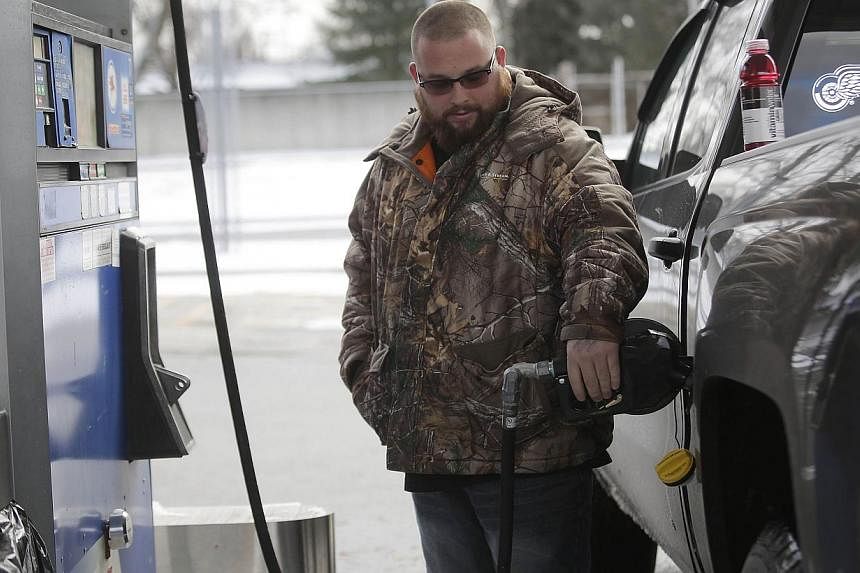NEW YORK (AFP) - The oil price plunge will force energy companies to slash capital spending in North America, Europe and Asia in 2015, investment bank Evercore IS said on Tuesday.
But investment will continue to rise in Africa and the Middle East as producers in those areas seek to boost long-term output in the flooded global oil market.
Evercore estimated that oil companies would cut spending on exploration and production globally this year by 10-15 per cent, and by 25-30 per cent in North America.
"To sum it up, a sharp recession is coming to the global oilfield," said Mr James West, an oilfield services analyst at Evercore, after surveying 300 global oil and gas companies on their 2015 spending plans.
The report shows the impact of the steep drop in oil prices. US oil prices Tuesday closed at US$47.93, down from nearly US$107 in June.
The London benchmark, Brent crude, has fallen from US$115 a barrel to less than US$52 Tuesday.
The oil-price crash is also beginning to reverberate across other industries. US Steel plans to lay off hundreds of workers due to lower petroleum industry demand for pipes, a union source said Tuesday. About 750 workers are expected to lose their jobs, according to US media.
Evercore said the oil industry is contending with lower cashflow and a lack of access to capital. Independents are especially vulnerable.
As a result, companies are cutting back especially in high-cost Arctic drilling and in Canadian oil sands projects, as well as on some US shale ventures.
Arctic projects require oil prices of about US$115-US$122 a barrel to break even, while Canadian oil sands and deepwater developments can require US$90 a barrel.
Many US shale developments can withstand a somewhat lower price, but Evercore said a sustained fall to $60 a barrel or below would force companies to curtail operations.
Evercore also expects capital spending in Europe to fall by 20 per cent due to cuts in the North Sea. It projects more modest declines in spending in Asia and Latin America.
Investment in Russia will be trimmed by 10 per cent or more due to lower prices as well as international sanctions on Russia.
However, Middle East capital spending is expected to rise 15 per cent, with Saudi Arabia proceeding with a number of high-cost natural gas projects and Kuwait working to boost its crude output to four million barrels a day in 2020 from about three million now.
The report said African spending would rise by six per cent in 2015, thanks to strong investment in Angola and Algeria.
The Evercore report showed a sector grappling with uncertainty at how low oil prices would fall and for how long.
Companies in the sector based their capital budgets on an average 2015 price of US$78 a barrel, implying the industry sees a rally in crude prices later in 2015.
But Societe Generale on Tuesday slashed its earnings estimates for oil services companies, predicting that "the oversupply situation will pressure the oilfield environment well into 2016."
Oil-services companies Halliburton (-0.9 per cent), Schlumberger (-2.1 per cent) and Weatherford International (-0.7 per cent) continued to drop on Tuesday in parallel with crude prices.
Evercore's projections were based on replies to a survey on company spending plans that was begun in November, when the US price was still above US$70 a barrel.
Survey responses showed 2015 capital spending declining by 11 per cent in North American and 2.1 per cent in international markets.
However, Mr West said because oil prices have continued to sink since the survey was launched, its numbers "grossly" underestimate the scale of likely spending cuts.
Indeed, in December 15 companies revised down their capital spending plans by an average of 38 per cent.

